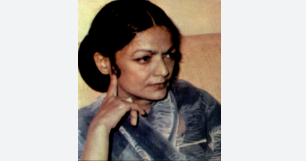Lahore (Web Desk): On the occasion of her birth anniversary, Khadija Mastoor, the esteemed short story writer and novelist, was fondly remembered for her profound contributions to Urdu literature.
Born on December 11, 1927, in Bareilly, India, she migrated to Lahore with her family after the partition of 1947, marking a new chapter in her life and literary journey.
Her writing began in 1942, a pursuit she continued with unwavering dedication until her passing in 1982.
Over the decades, she crafted a body of work that encompassed five collections of short stories and two celebrated novels, each offering poignant reflections on the human condition.
Her narratives were deeply rooted in the social, moral, and political landscape of her time, deftly weaving together the personal and the societal. Among her most renowned works is the novel Aangan, a literary masterpiece that has garnered enduring acclaim.
The novel’s sensitive exploration of the emotional and psychological toll of political upheaval, particularly in the context of post-partition India and Pakistan, continues to resonate with readers.
Its adaptation into a popular television drama further cemented its place in the cultural consciousness, bringing her poignant prose to a wider audience.
Khadija Mastoor’s literary genius was not an isolated phenomenon. She was part of a remarkable family of writers and intellectuals.
Her younger sister, Hajra Masroor, was also a noted short story writer, while her brother, Khalid Ahmad, distinguished himself as a poet, playwright, and newspaper columnist. Together, they contributed to a rich literary heritage that continues to shape Urdu literature.
Khadija Mastoor passed away on July 25, 1982, in London, where she was laid to rest, but her legacy lives on in the timeless quality of her work, which remains a touchstone for those who seek to understand the complexities of the human experience through the lens of literature.


